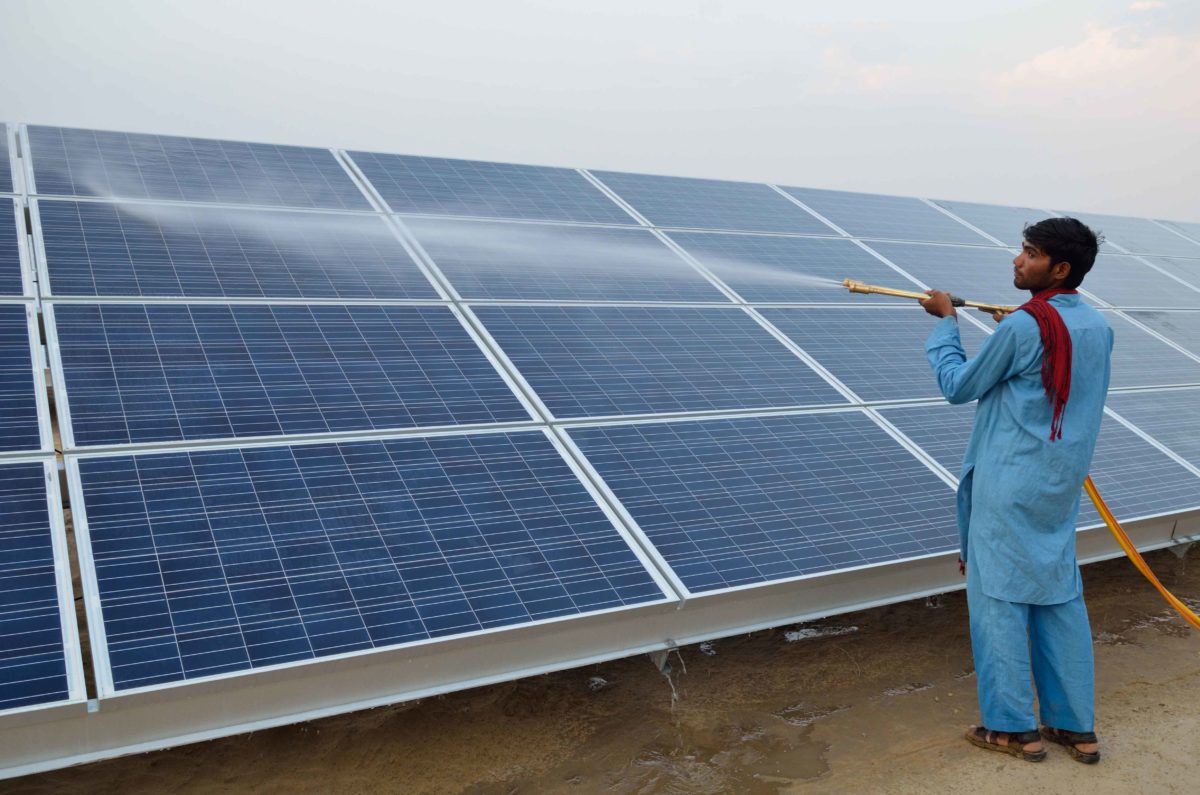The solar industry needs to ensure efficient use of water and justify the ‘environmentally friendly’ tag, consultants Bridge To India said.
The statement comes close on the heels of Ministry of New and Renewable Energy’s (MNRE) advisory to all states and solar industry associations on optimal utilisation of water for solar panel cleaning, which, Bridge To India analysts feel, is a belated acknowledgement of the increasing water risks posed by the solar sector.
The consultancy highlighted that more than half (56%) of India’s installed solar capacity is located in arid and high water-stress zones. For projects located in areas with good availability of water, wasteful use of water is a common problem.
“The problem is exacerbated by the fact that around 60% of solar installations use ground water, sometimes illegally,” it added.
Possible solutions
In the absence of use of dust-resistant modules in most installations across India, cleaning of modules is critical to reduce soiling losses, which can be in the range of 3-6% of generation.
Bridge To India said that it is common industry belief that solar modules require two cleaning cycles per month to reduce soiling losses to a level of 1%.
However, actual water consumption varies widely depending on water availability, cost of water, location of power plant and level of environmental consciousness of developers and/or operation and maintenance players, amongst other factors.
Highlighting the possible solutions, it said there are proven and affordable technologies providing water-efficient solutions including anti-soiling coatings, robotic cleaning, and hydrophobic and nanotechnology based self-cleaning, amongst others.
Anti-soiling coating and robotic cleaning are already being deployed by leading developers and engineering, procurement and construction contractors.
These solutions can reduce water consumption by 35-100% depending on the type of system used. Additional capital cost can be easily justified by power generation gains as well as savings in operational costs, Bridge To India added.
This content is protected by copyright and may not be reused. If you want to cooperate with us and would like to reuse some of our content, please contact: editors@pv-magazine.com.









1 comment
By submitting this form you agree to pv magazine using your data for the purposes of publishing your comment.
Your personal data will only be disclosed or otherwise transmitted to third parties for the purposes of spam filtering or if this is necessary for technical maintenance of the website. Any other transfer to third parties will not take place unless this is justified on the basis of applicable data protection regulations or if pv magazine is legally obliged to do so.
You may revoke this consent at any time with effect for the future, in which case your personal data will be deleted immediately. Otherwise, your data will be deleted if pv magazine has processed your request or the purpose of data storage is fulfilled.
Further information on data privacy can be found in our Data Protection Policy.